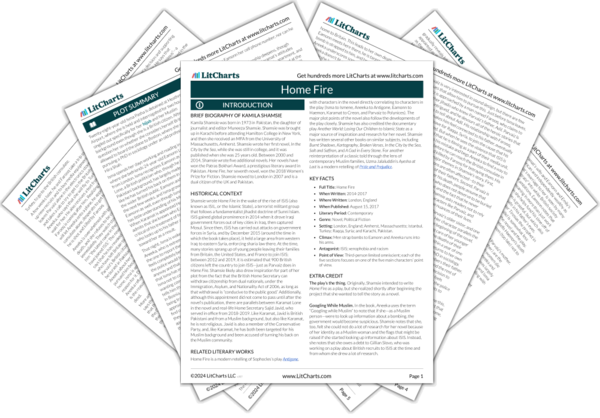Karamat believes he is protecting his son from the disastrous decisions he has made, believing that Eamonn fell victim to Aneeka’s manipulations. But in using crass language and in demeaning Aneeka based on stereotypes, he only serves to drive a wedge further between himself and Eamonn (and also between himself and Terry, when Eamonn relays this language later). Thus, what is meant to be protection is again interpreted as a betrayal of trust. Karamat’s accusations here also mirror Sophocles’s
Antigone, in which Creon accuses his son Haemon of naively falling under the spell of an attractive woman. In return, Haemon accuses Creon of being an unjust ruler, which is roughly what Eamonn says to Karamat here.
